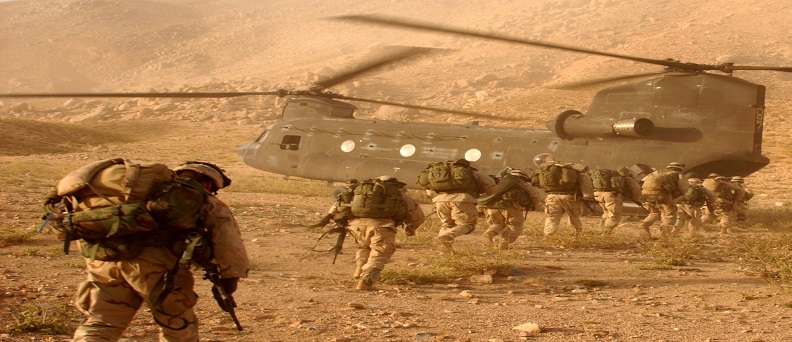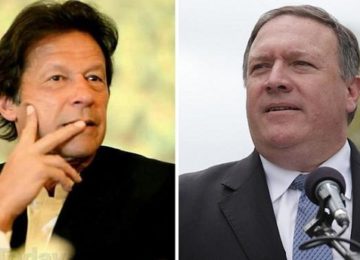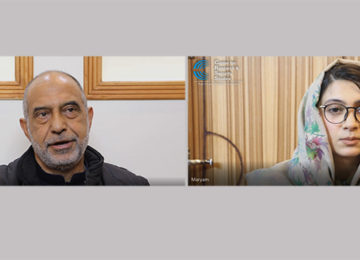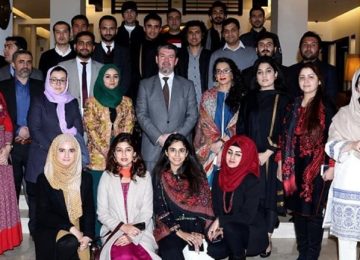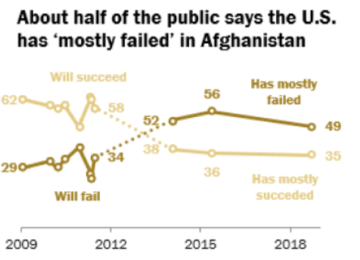US President Donald Trump’s long awaited Afghan policy speech came as no surprise. National Security Advisor Gen. McMaster and Secretary of State Rex Tillerson had already been spelling out through media the broad contours of the review. Nothing surprising therefore, except almost declaring a war on Pakistan, holding it solely responsible for Afghan troubles.
Where Trump cleared way for more military reinforcements in the country, he also called upon the government in Kabul to take more responsibility of its domestic affairs.
Trump also warned that the government in Washington was not willing to remain a ‘blank cheque’ for policy makers in Kabul, and that economic initiatives are to be taken to reduce financial burden of the US towards Afghanistan.
On Pakistan, Trump’s line was more or less similar to that of his predecessors. There were renewed choruses of ‘Do More’, with Trump asking Islamabad to take concrete actions on the terrorists camps based in the country. Additionally, he also warned Islamabad by stating that Pakistan had all to lose if it didn’t tow to the US line of policy in Afghanistan.
Ironically, even with his harsh stance, Trump gave little or no policy solutions on how his administration planned to deal with Islamabad.
On the other hand, Trump explicitly brought India – Pakistan’s arch rival – into the equation by calling on New Delhi to play a concrete role in Afghanistan’s peace as well as economic progress. He linked India’s billions of dollars in earnings from trade with US to the former’s financial obligations towards Afghanistan, essentially asking India to spend more to assist US military missions abroad and take greater responsibility
Trump has called for a fierce new approach to deal with terror groups in Afghanistan, along with also keeping a door open for reconciliation, hoping for peace talks sometime in the future.
As expected, the Afghan Taliban were quick in dismissing Trump’s announcements as unnecessary intimidation and recipe for more hostilities and destruction.
“If America doesn’t withdraw its troops from Afghanistan, soon Afghanistan will become another graveyard for this superpower in the 21st century,” Taliban spokesman Zabiullah Mujahid said in his statement.
Mujahid also called Trump’s strategy vague, and not new. “For now I can tell you there was nothing new in his speech and it was very unclear,” Mujahid continued in his statement. Mujahid further added that the group was in process of preparing a detailed statement and response to Trump’s speech which would be released later.
Another senior Taliban commander argued that Trump was just perpetuating the “arrogant behaviour” of previous presidents such as George Bush. He further said that “He (Trump) is just wasting American soldiers. We know how to defend our country. It will not change anything. For generations, we have fought this war, we are not scared, we are fresh and we will continue this war until our last breath,” (according to AFP).
With his latest announcement, clearly backtracked from his promise of ending the Afghan war and has set the ball rolling for pursuing the military option (injection of another 3,800 troops).
Also, where many in Washington agree that Pakistan’s role in Afghan peace is indispensable, Trump’s isolation and singling out of Pakistan would do more harm than good. Pakistan, currently entangled in its own domestic terror woes, has clearly maintained that peace is Afghanistan would naturally be a good omen for Pakistan.
With recent initiatives taken by regional stakeholders towards initiating a peace dialogue in Afghanistan, Trump’s hard line on the country is bound to backfire just as it did for Obama. The new policy sounds like old wine in a new flashy bottle, essentially a reiteration of the Indo-US narrative that Pakistan “abets terrorists and their sanctuaries.” It clearly means intensification of hostilities if actions on ground (by the US and Afghan security establishment) correspond to his statement. Upstaging India in Afghanistan, asking it for a more active role clearly means raising alarm in Pakistan and drawing adverse, though not unexpected reactions not only from the Afghan Taliban but also Pakistan’s security establishment.
If Trump survives to enforce the new policy, this would mean investing more resources in conflict instead of seeking a political solution. It would mean more mess borne out of geo-political rivalries.
The author Farooq Yousaf is a Research Analyst and Consultant at the Center for Research and Security Studies (CRSS), Islamabad.
© Center for Research and Security Studies (CRSS) and Afghan Studies Center (ASC), Islamabad.



